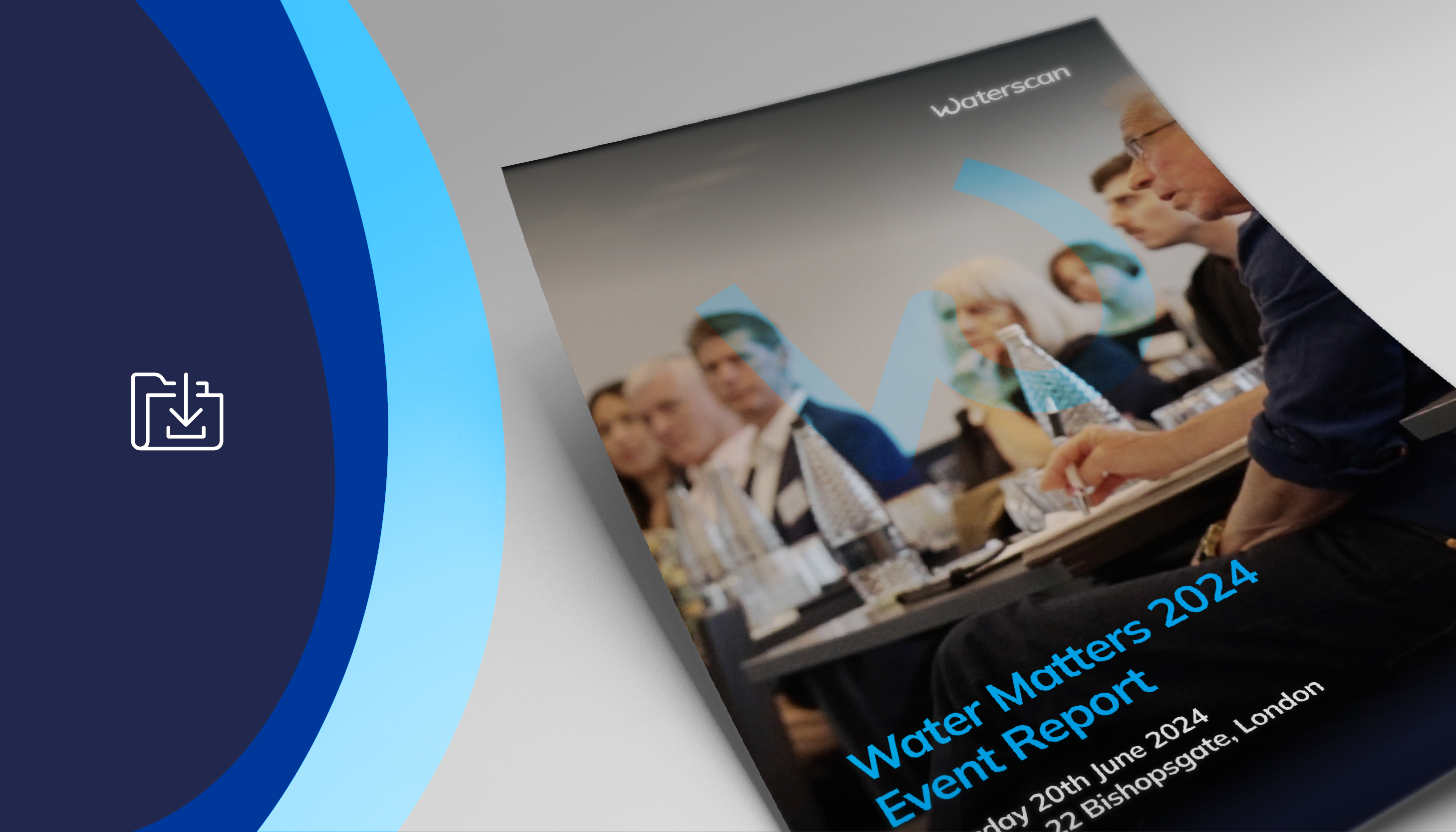Dropping in on recent headlines and why they might be important to your business.
It seems that water has hardly been out of the news over the last few months, with recurrent themes of flooding and scarcity, water quality and increasing scrutiny over various aspects of the water market.
Let’s start with the big picture. The impacts of climate change on our oceans and rivers are now indisputable. BBC News has run several stories around the warming of our oceans – the reasons for which aren’t fully understood but the implications are: warmer oceans kill off marine life, lead to more extreme weather, raise sea levels, and are less efficient at absorbing planet-warming greenhouse gases. In the UK, the sea is particularly warm off the east coast from Durham to Aberdeen, and off north-west Ireland, says its Climate Editor and the UK’s hottest June on record caused unprecedented deaths of fish in rivers according to the Wildlife Trusts. Natural England reports that England has the lowest level of biodiversity in the G7 and ranks 189th in the world, largely driven by water scarcity.
On land, there’s been no escaping tales of flooding, and on the flipside, water scarcity, and it’s important to note how localised these impacts are. In February, The Guardian and other outlets bought us video footage of record low water levels in Italy’s Lake Garda. Just three months later, it was reporting on how, not far away, 21 rivers burst their banks when six months’ rainfall fell in a day and a half. 13,000 families and businesses were forced to flee in the wake of the water and mudslides that followed. At the same time, a drought crisis was declared in parts of France, banning car-washing, garden-watering and pool-filling. In California, the heightened risk of natural disasters has led to homeowners no longer being able to take out insurance policies — could businesses be similarly impacted? Here at home, forecasters believe that flooding will become more intense and more frequent, with the Environment Agency warning that millions of homes and businesses are at risk, and should begin taking action, according to the BBC. With good granular data, it is possible to map the water-related risks across your operations and formulate appropriate mitigation strategies that align with net zero ambitions and commercial goals.
It’s no wonder then that water scarcity is shooting up consumers’ sustainability agendas, according to Food Service Footprint [RY1] reporting on Mintel’s Global Outlook on Sustainability. This highlighted that in 2021, less than three in ten (27%) people worried about water shortages, but by 2023, that figure is now 35%.
Investors too, are beginning to scrutinise water stewardship, given that two-thirds of big corporations are inadequately managing these risks despite prior warnings from The World Bank about negative impacts of water mismanagement on GDP. Our own disclosure partner, CDP, estimates that some $15.5bn worth of corporate assets have been left stranded or at risk due to water stress. It is calling on all corporates to recognise the interconnectivity of all environmental issues and consider how to take a holistic approach to tackling them. Consequently, it is expanding its reporting scope to cover land, resilience, biodiversity, waste, oceans, freshwater, forests and food. The Valuing Water Finance Initiative, a campaign by 89 institutional investors managing a combined $17 trillion in assets to evaluate and engage 72 global companies on the pillars of good water stewardship is a useful contribution to this work also. Transparency and disclosure are recognised as the foundations for driving change, yet there are too few companies embracing the opportunity to benefit from CDP support when it comes to water, even if they have been reporting on carbon for some time.
The key to unlocking measurable performance is access to data, and so it’s worth drawing attention to the fact that just 5% of non-household water meters are ‘smart’ or have a smart logger attached. This is despite some 82% of customers being supportive of the idea, according to research conducted by the Consumer Council for Water. It’s therefore pleasing to see the Strategic Panel picking up the baton with its Interim National Metering Strategy which aims to accelerate progress on this front. We encourage all companies to demand timely, accurate consumption data from their water suppliers, and if you’re not getting this, we can help.
Wanting to do something and knowing what to do aren’t the same, as was abundantly clear during the recent Water Matters conference which focussed on the approaches that have the greatest impact. Drawing on his 30 years’ experience of campaigning for the environment, Keynote Speaker Chris Hines, MBEgave an inspiring and passionate talk on the role of collective action and intelligent activism in inspiring positive change to address huge challenges. He commented on how little water was considered when compared to other industries and urged businesses to be more responsible in their water use. The empowering takeout was that everyone is capable of change. So it’s good to see The Water Report acknowledging the efforts of Whitbread Premier Inn which is targeting a 20% reduction in water use per guest by 2030 and Boots which has just secured a licence to Self-Supply to take more control over its water. The truth is that no two companies will take the same approach: while some will immediately benefit from focusing on data, others already have a firm grasp of this and are ready to create bespoke and regionalised strategies. The important thing to note is that water is quite unlike other utilities so expert guidance is recommended.
A fundamental aim of the water market is to empower non-household customers to manage their water consumption, effluent and costs more efficiently. Market Operator MOSL is noting improvements in its latest Annual Performance Report but there’s a long journey ahead. In the wake of rising public anger over water companies discharging sewerage, one water company blaming its hosepipe ban on people working from home, and the much-reported financial problems at another, market regulator Ofwat has its work cut out to keep players in the market accountable for their actions and trusted by the customers they serve. Responding to the public consultation on the water companies’ draft Water Resource Management Plans, we certainly feel that they could all do more to alleviate the strain on our water resources and environments, and to restore faith in the water industry.




